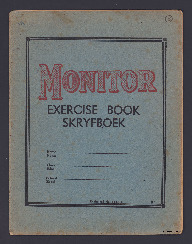My life in the RAF - chapter 5
Title
My life in the RAF - chapter 5
Description
Describes time at Hillside ITW camp, Bulawayo. Having to wait before starting aircrew training. Includes letter to sister and brother describing a typical day in camp. Describes local area and inhabitants as well as training activities, drill, accommodation, choir, survival training and examinations.
Creator
Coverage
Language
Format
Notebook with fifteen handwritten pages
Is Part Of
Publisher
Rights
This content is available under a CC BY-NC 4.0 International license (Creative Commons Attribution-NonCommercial 4.0). It has been published ‘as is’ and may contain inaccuracies or culturally inappropriate references that do not necessarily reflect the official policy or position of the University of Lincoln or the International Bomber Command Centre. For more information, visit https://creativecommons.org/licenses/by-nc/4.0/ and https://ibccdigitalarchive.lincoln.ac.uk/omeka/legal.
Identifier
SDunnFT1319229v10002-0003
Collection
Citation
F T Dunn, “My life in the RAF - chapter 5,” IBCC Digital Archive, accessed July 27, 2024, https://ibccdigitalarchive.lincoln.ac.uk/omeka/collections/document/40048.
Item Relations
This item has no relations.

